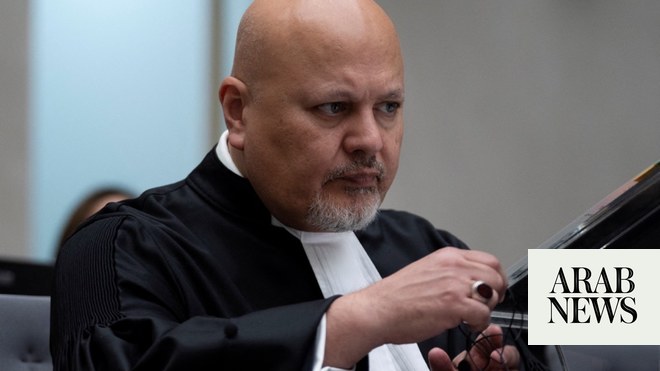
When International Criminal Court (ICC) Prosecutor Fatou Bensouda confirmed last December that the court has ample evidence to pursue a war crimes investigation into the situation in occupied Palestine, the Israeli government responded with its usual rhetoric, accusing the international community of bias and insisting on Israel’s “right to defend itself.”
However, beneath the platitudes and typical Israeli discourse, the government knew all too well that an ICC investigation into war crimes in Palestine could be quite costly. An investigation, in itself, represents an indictment of sorts. But if Israeli individuals were to be indicted for war crimes, that would be a different story, as it becomes a legal obligation of ICC members to apprehend the suspects and hand them over to the court.
Israel remained publicly composed, even after Bensouda in April elaborated on her December decision with a 60-page legal report, titled: “Situation in the State of Palestine: Prosecution Response to the Observations of Amici Curiae, Legal Representatives of Victims, and States.” In the report, the ICC addressed many of the questions, doubts and reports submitted or raised in the four months that followed the initial decision. Countries such as Germany and Austria, among others, had used their position as amici curiae (friends of the court) to question the ICC’s jurisdiction and the status of Palestine as a country.
Bensouda insisted: “The Prosecutor is satisfied that there is a reasonable basis to initiate an investigation into the situation in Palestine under article 53(1) of the Rome Statute, and that the scope of the Court’s territorial jurisdiction comprises the West Bank, including East Jerusalem, and Gaza.”
However, Bensouda did not provide definitive a timeline for the investigation; instead, she requested that the ICC’s Pre-Trial Chamber “confirm the scope of the Court’s territorial jurisdiction in Palestine” — an additional step that is hardly required since the State of Palestine, a signatory of the Rome Statute, is the one that referred the case directly to the prosecutor’s office.
The April report was a wake-up call for Tel Aviv. Between the initial decision in December and the release of the report, Israel lobbied on many fronts, enlisting the help of ICC members and recruiting its greatest benefactor, the US — which is not an ICC member — to bully the court so that it might reverse its decision.
On May 15, US Secretary of State Mike Pompeo warned the ICC against pursuing the investigation, targeting Bensouda in particular for her decision to hold war criminals in Palestine accountable. The US then slapped unprecedented sanctions on ICC officials on June 11, with President Donald Trump issuing an executive order that authorizes the freezing of assets and imposition of travel bans. The order also allows for the punishment of individuals or entities that assist the ICC in its investigation.
Washington’s decision to impose punitive measures against a court that was established for the sole purpose of holding war criminals accountable is both outrageous and abhorrent. It also exposes the US’ hypocrisy: The country that claims to defend human rights is attempting to prevent those who have violated human rights from facing justice.
Upon its failure to halt the ICC legal procedures regarding its investigation into war crimes, Israel began to prepare for the worst. Israeli newspaper Haaretz this month reported that a “secret list” was being drawn up by the government. The list includes the names of “between 200 and 300 officials,” ranging from politicians to military and intelligence officials, who might be subject to arrest abroad should the ICC follow through with its investigation. People identified on the list include those at the top of the Israeli political pyramid, such as Prime Minister Benjamin Netanyahu and his coalition partner, Benny Gantz.
The sheer number of Israeli officials on the list is indicative of the scope of the ICC’s investigation and is a self-indictment, as those identified include former Defense Ministers Moshe Ya’alon, Avigdor Lieberman and Naftali Bennett; current and former army chiefs of general staff Aviv Kochavi, Gantz and Gadi Eisenkot; and current and former heads of intelligence agency the Shin Bet Nadav Argaman and Yoram Cohen.
Respected international human rights organizations have already repeatedly accused all of these individuals of serious human rights abuses during Israel’s lethal wars on the besieged Gaza Strip, starting with the so-called “Operation Cast Lead” in 2008-09.
But the list is extensive as it also covers “people in much more junior positions, including lower-ranking military officers and, perhaps, even officials involved in issuing various types of permits to settlements and settlement outposts.”
Israel, thus, fully appreciates the fact that the international community still insists that the construction of illegal colonies in occupied Palestine, the ethnic cleansing of Palestinians, and the transfer of Israeli citizens to occupied land are all inadmissible under international law and tantamount to war crimes. Netanyahu must be disappointed to learn that all of Washington’s concessions to Israel during Trump’s presidency have failed to alter the position of the international community and the applicability of international law in any way.
Furthermore, it would not be an exaggeration to argue that Tel Aviv’s postponement of its plan to illegally annex nearly a third of the West Bank is directly linked to the ICC’s investigation, for the annexation would have completely thwarted Israel’s friends’ efforts aimed at preventing the investigation from ever taking place.
All of Washington’s concessions to Israel have failed to alter the position of the international community.
Ramzy Baroud
While the whole world, especially Palestinians, Arabs and their allies, anxiously await the final decision by the Pre-Trial Chamber, Israel will continue its overt and covert campaign to intimidate the ICC and any other entity that aims to expose its war crimes and try Israeli war criminals. Washington, too, will continue to strive to ensure Netanyahu, Gantz, and the “200 to 300” other Israeli officials never see their day in court.
However, the fact that this “secret list” exists at all is an indication that Tel Aviv understands this era is different and that international law, which has failed Palestinians for more than 70 years, may ultimately deliver, even if it is only a small measure of justice.
Ramzy Baroud is a journalist and editor of The Palestine Chronicle. He is the author of five books. His latest is “These Chains Will Be Broken: Palestinian Stories of Struggle and Defiance in Israeli Prisons” (Clarity Press, Atlanta). Twitter: @RamzyBaroud
Disclaimer: Views expressed by writers in this section are their own and do not necessarily reflect Arab News" point-of-view











